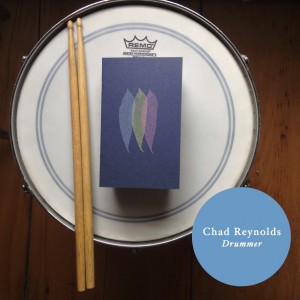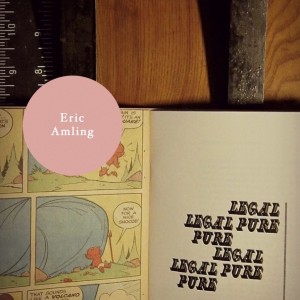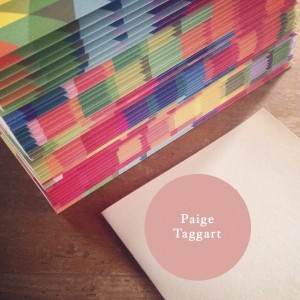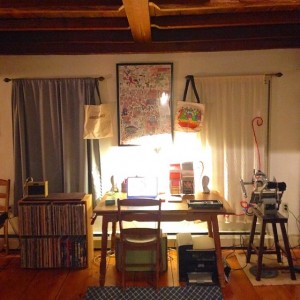This article can also be found by way of our cosponsor, Poetry Society of America, in their Chapbook Publishers: Q & A series.
![]() Carl Annarummo on Greying Ghost Press
Carl Annarummo on Greying Ghost Press
Carl Annarummo is the author of The Soft War (Poor Claudia, 2014) and is managing editor of Greying Ghost. He currently resides in the Boston area with his chubby black cat, Roxanne.
* * *
What is your own personal history with chapbooks? How did they first catch your interest?
I can’t quite remember when I first discovered chapbooks. I do remember going to the Grolier Bookshop in Cambridge when I was in college and picking up books by Burning Deck and Ugly Duckling and a handful of others. I think I spent something like $25 for all that poetry which for a broke student was amazing. And they were so beautiful looking!
A few years later gears started turning and eventually Greying Ghost was born.

What made you first decide to start publishing chapbooks?
It was just a perfect storm. I knew a lot of great writers who had work they wanted to share. I had a printer and some ink. I was curious and willing to learn. I’ve been around printed matter most of my adult life so it just seemed like the logical next step. Also I couldn’t get my own poems published so I figured it’s be a good way to sneak in a few of my own inventions here and there. No but really, I had the basic tools at hand, I had a great group of writerly friends, and the time to put it all together. So why not, you know
Could you talk a little bit about your own process of making and publishing chapbooks?
My process usually involves me sitting on a crowded bus after work with a copy of the poems in my hand. I’ll read for a bit and then get lost in thought while staring out the window or at the back of someone’s head. Maybe I’ll make notes about layout or covers. But mostly I spend a lot of time just thinking about the works themselves. Like an ungodly amount of time. I have trouble with deadlines because I think too damn much! The actual making of the books themselves is pretty standard affair: Cheap beer. Late nights spent formatting text on the computer. Later nights spent folding and cutting everything by hand. Everything is done by me by hand. From printing to shipping to distributing. The covers typically come last. Ideas one through three usually never pan out so the forth option is the one that people see. It’s not glamorous but it is fun as hell.

What is unique about the chapbook form, or why chapbooks and not book-books?
With chapbooks, I feel that writers can take chances that they couldn’t otherwise do with a full length. Or they can at least work around an idea that they can realistically only sustain for a short time. With chapbooks you get to cut excess fat and really produce a work that is focused and singular. But then also, while working with this singular idea or theme, you can really go nuts and really explore every crevasse in its facade. Chapbooks are like what music EPs were when I was a kid. The full length albums always had those 3 or 4 songs that were pure stinkers but the EP was typically a solid collection of 5 or 6 tracks. And every track was a banger.
Do you have recent favorite chapbook from another press?
I’ve been a bit out of the loop lately so I haven’t been buying much but I’m really liking what Argos Books and Rye House are doing. The chapbook fest is always my yearly re-entry into the chapbook world. It’ll be good to get back up to speed.

What does it mean to the chapbook and experimental publishing community to come together and compare projects once a year at the CUNY Chapbook Festival?
It means a lot. It’s a great time to catch up with old comrades and make new alliances. For me personally, because I don’t have a lot of contact or interaction with publishers and consumers, it’s awesome to be able to shake someone’s hand or hear some words of encouragement first-hand.
 Carl Annarummo on Greying Ghost Press
Carl Annarummo on Greying Ghost Press